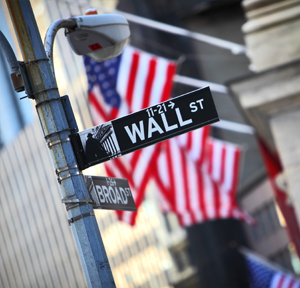Banking Crisis
REVIEW: Hollywood's Rollicking Tale Of Wall Street Hubris - The Big Short

A review of The Big Short, the film based on the best-seller of the same name by Michael Lewis.
A film that is deservedly winning plaudits is The Big
Short, a film about events leading up to the 2008 financial
crisis and based on the Michael Lewis book (2011) of the same
title. I read the book a few years’ ago and was swept up in its
tale of how misfits and renegade finance geeks saw the US
sub-prime market as the disaster it proved to be.
The movie manages to explain such concepts as collateralised debt
obligations (CDOs), “tranches”, credit default swaps and
mortgage-backed securities, and do it all at the pace and level
that a Hollywood audience will demand. That’s some feat. One of
the clever touches is when an actor turns to the camera and
explains direct to camera what is about to happen or what just
happened. The film has its very funny moments. As a journalist, I
can relate to a scene where one of the protagonists grills a
banker about default rates in front of a crowded room. There
is pathos too. While there are clearly strong morals to
be drawn from this film (as in other Michael Lewis tales such as
Liar’s Poker) the movie, like the book, isn’t too
preachy or holier than thou. The cast is excellent: I give
particularly high marks to Steve Carell, who plays Mark Baum.
Adam McKay wrote the screenplay and directed the film, and his
guidance is steady and well-paced.
There are some scenes designed to drive home the sleaziness of
what the director sees as the mortgage/debt markets of the
mid-noughties, such as when Baum goes to a strip-joint (this film
has a 15 age certificate) to be told by one of the dancers she
has several mortgages on houses; and the impression we are meant
to go away with is how deluded and fraudulent part of the banking
system was. What perhaps is harder to pull off in a narrative
like this is to explain why the housing bubble was what it was,
and what its origins are. Your reviewer thinks that a large
slice of blame attaches to the Federal Reserve for a period of
very low interest rates and to various Democrat and Republican
administrations for tolerating such monstrosities as Freddie Mac
and Fannie Mae – about half of the mortgage market in the US is
backed, ultimately, by the taxpayer. The moral hazards involved
were and are huge. It is easy to blame “deregulation” and
"greedy bankers", but worth noting that the reinstatement of the
Glass-Steagall split of investment banking from retail banking
would not have, for example, stopped the risk-taking of
Countrywide, or in the UK, the demise of the Northern Rock bank,
or the hubris of lenders in Iceland. Arguably, it wasn’t
capitalism that failed, but a sort of hybrid of crony corporatism
and special-interest politics, with a strong dose of banker
hubris in the mix.
Films that entertain aren’t always the best ways to explain a
complex set of forces, but The Big Short is a rollicking
good tale. It is in the same bracket, in my view, as Margin
Call (2011), a film starring Kevin Spacey and Jeremy Irons.
The Big Short doesn’t have an out-and-out villain like
Gordon Gekko of Wall Street and is actually all the
better for it. For in the end, what we learn is that this is an
all-too-human story of hubris, greed, and along the way, a bit of
moral courage thrown in the mix.
Highly recommended.